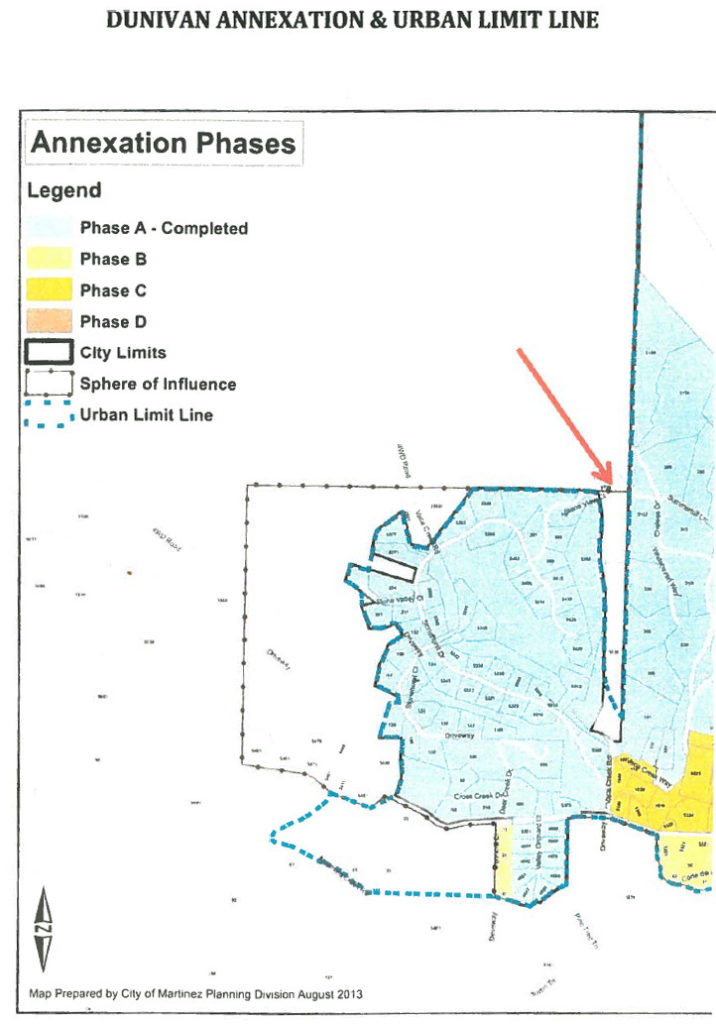
MARTINEZ, Calif. – A divided Martinez City Council voted 3-2 to spend up to $5,000 in reserves to cover the costs of an annexation request by the Dunivan Family Trust.
Proponents were Mayor Rob Schroder and Councilmembers Mark Ross and Noralea Gipner, who saw the approach as cleaning up a complication in a past annexation that left a long, narrow 10-acre strip of unincorporated land nearly surrounded by the city boundary.
Vice Mayor Lara DeLaney and Councilmember Debbie McKillop opposed the resolution, with DeLaney concerned that it continued setting a costly precedent the city can’t afford – one that started in September, when the Council agreed to waive application fees.
The Council chose to wait to determine whether future annexation applications should be eligible for fee waivers and what conditions those applications must meet to get that financial break.
Martinez city staff requested the Council clarify its intent when it voted Sept. 6, 2017, with DeLaney opposing and McKillop absent, to waive annexation fees for the Dunivan Family Trust application. It also directed staff to waive fees for properties that were continuous to the city limit, that had a public water system in place and that had existing development on the lands to be annexed.
Since then, Martinez has received several applications for annexation, some of which meet those three requirements, and staff posed several questions to the Council for clarification:
Did the Council want those waivers only for Alhambra Valley properties, or would Mountain View or other lands in the city’s “sphere of influence” be eligible? Would this include Urban Limit Line adjustments that don’t trigger public votes? Is the waiver limited to just the application fee, or does it cover cost of application materials and fees due to the Contra Costa County Local Agency Formation Commission (LAFCO)? Should waiver requests be decided by the Council or by staff?
Answers to those questions will come later, at a future meeting; Wednesday night, the panel focused on the Dunivan Family Trust application.
The city which provides water to the land, had requested annexation of that acreage along with other parcels in the Alhambra Valley annexation.
When Martinez extends water service to property outside the city limits, it can require landowners in exchange to give up their right to object to annexation.
Because the city initiated the action, application fees were waived for all parcels in the Alhambra Valley annexation. As Ross explained, property owners who didn’t ask to be annexed wouldn’t want to be saddled with application fees for something they didn’t request.
However, at the time of the Alhambra Valley annexation, county rules on Urban Limit Line (ULL) changes would have forced Martinez to give up Contra Costa County transportation revenues if the Dunivan property were included in the annexation, Schroder told the Council. “This completes what was started in 2010.”
“We spend a lot of money cajoling people (to annex into the city),” Ross said. “This is a unique situation.”
He said the Council at the time “did not want to against the county. It was foisted upon us.”
Gipner noted the city paid fees for those who were allowed to join the city. “We should pay.”
“The reason the property was not in the original annexation was it was bifurcated by the Urban Limit Line,” Schroder said. The city, which had requested the annexation, then had to ask the family trust to withdraw the land from the process, subject to future consideration should county rules changed.
The ULL is not established by the city, said Veronica Nebb, the city’s legal counsel, and Martinez had to ask the trust to remove the land from consideration so the half-cent sales tax transportation funds Martinez receives wouldn’t be jeopardized.
Since September, representatives of the Dunivan Family Trust have asked not only that the city fees be waived, but that Martinez pick up the costs of preparing a land map and the land’s legal description.
The trust has agreed to pay the $8,500 LAFCO application fees. City staff requested the Council clarify whether the city should pay for the other documents.
“I’m not surprised we’re in this quandary,” DeLaney said. “I didn’t support it at the time, and I will not support this. Pointing out that city staff already has spent….We have fees for a reason.”
She said if the Council proceeded, it would be $15,000 in revenue lost. If three more areas get the same treatment, that’s $45,000 lost at a time the city is in a financial crisis, she said.
“I’m not against annexation,” DeLaney said, saying she welcomed those who want their land inside the city limits.
However, she criticized the staff report, saying it didn’t provide background on the impact of the ULL rules on the 2010 action.
She also disagreed with Ross, who said there was no policy to guide the Council’s decision in this case.
The city does have a policy, she contended – its fees and fee schedules. “There should have been no waiver,” she said.
Two speakers suggested the waiver was based not on the 2010 situation but because the Dunivan family contributes to incumbents’ campaigns, particularly those of the mayor.
Ross said he hasn’t received any campaign donations from the family since 2002.
Another speaker, John Stevens, said if any other name were associated with the matter, it wouldn’t be politicized. However, he cautioned the city about annexing properties with the thought that property taxes would cover costs of services.
“Can we give them the services they expect?” he asked.
He also worried that the city was not being consistent in its fee waivers.
Susan Gustofson told the Council she was disappointed that voters had turned down the chance to annex part of the Pacheco community, which would have given Martinez land on which to establish industries that would improve the city’s tax base.
McKillop worried that existing criteria could lead to piecemeal annexation of individual parcels, and said she preferred larger, contiguous areas be acquired instead.
“I have mixed feelings,” she said. She’s heard from people who have bought property thinking it was in the city limits. “There are people who want to be part of Martinez. I’d like to find a way to incentivize people to be part of Martinez.”
The Council was more unified on requested increases in its recreation fee schedule.
Even with the increases, those fees won’t cover all the costs of operating the city’s park game fields and swimming pool, but will reduce the 48 percent subsidy needed to cover those expenses.
The Rankin Park pool brings in $257,852 in revenue, but costs $353,565 to operate, requiring a 27.1 percent subsidy, according to the 2017-18 revised budget.
Other programs cost even more, according to a city report by Michael Chandler, deputy director of Administrative Services, and Patty Lorick, Recreation supervisor. The programs bring in $219,300 but cost $564,400, and need a subsidy of 61.1 percent from the city coffers.
Costs keep rising, from maintenance and utilities to minimum wage employees, and recreation fees have not kept pace. Lorick said some fees haven’t been changed since 2005.
Because it is a practice field, Lorick proposed no changes to fees for use of Field 5 of the Martinez Waterfront Park for organized softball and baseball tournaments and league sports. Other hourly rate changes for other fields for such use would be modest, she said: a dollar increase to $10 for Golden Hills; an increase from $16.50 to $20 for Hidden Lakes’ two fields; an increase from $9 to $12 an hour for each of the two fields at Hidden Valley; and a cost of $10 an hour for Holiday Highlands.
The cost to use Mountain View Borman Field goes from $9 an hour to $12; Mountain View’s grass field’s new rental is $10 an hour; rental of each of the Morello Park Elementary School fields is $12 as is the Nancy Boyd Park baseball field; and Tavan Field is $20 with an additional cost of $32 for lights.
Of the other Waterfront Park fields, residents, non-residents and commercial groups have been paying $16.50, and that rises to $25 for residents and $35 for non-residents and $40 for commercial interests. Light fees go from $32 to $35.
Field preparation would be $40.
The commercial and professional category of fees of $40 an hour plus $35 an hour for lights if needed will be charged the Martinez Clippers Baseball Corporation for reservations of Field 3 outside of game days.
Game use comes under the club’s contract, under which it is paying a flat $250 a day under its license agreement adopted by the Council May 16. It also would pay the field preparation fee for situations outside its agreement with the city.
At Rankin Park Aquatic Center, daily admission for those 3 to17 would increase 50 cents, from $3.50 to $4. Ten-punch swim cards would cost $32 instead of $28; 20-punch cards would be $56, up from $49; residents’ full-season passes would be $72 instead of $63; and non-residents’ season passes would be $80, up from $70.
Those 18 to 54 would pay $6 instead of $5.50 for daily admission; $48 instead of $44 for 10-punch cards; $84 instead of $77 for 20-punch cards; $138 instead of $126.50 for a resident’s season pass; and $152 instead of $139 for non-resident’s season pass.
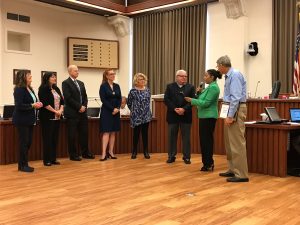
Those 55 and older would pay $5 instead of $4.50 for daily passes; $40 instead of $36 for 10-punch swim cards; $70 instead of $63 for 20-punch cards; $115 instead of $103 for a resident’s season pass and $127 instead of $114 for non-resident’s season pass.
A daily family pass for up to five people would rise from $18 to $20.
The pool would continue to be available for parties for two-hour periods Saturdays and Sundays, and those fees would be increased, based on how many are expected to attend the party and the amenities those attending would expect the pool to provide.
Parent/tot swimming lesson prices would increase from $21 to $23 for residents and from $24 to 26 for non-residents. Group lessons for those 4 to adult age would rise to $33 from $31 for residents and $36 from $34 for nonresidents. Private lessons would be $25 each or $90 for four.
The Council also agreed unanimously to allow, but not require one person on the Planning Commission to live outside the city in the nearby area considered its “sphere of influence.” It issued proclamations about National Donate Life and Alcohol Abuse Awareness and Friday Night Live.

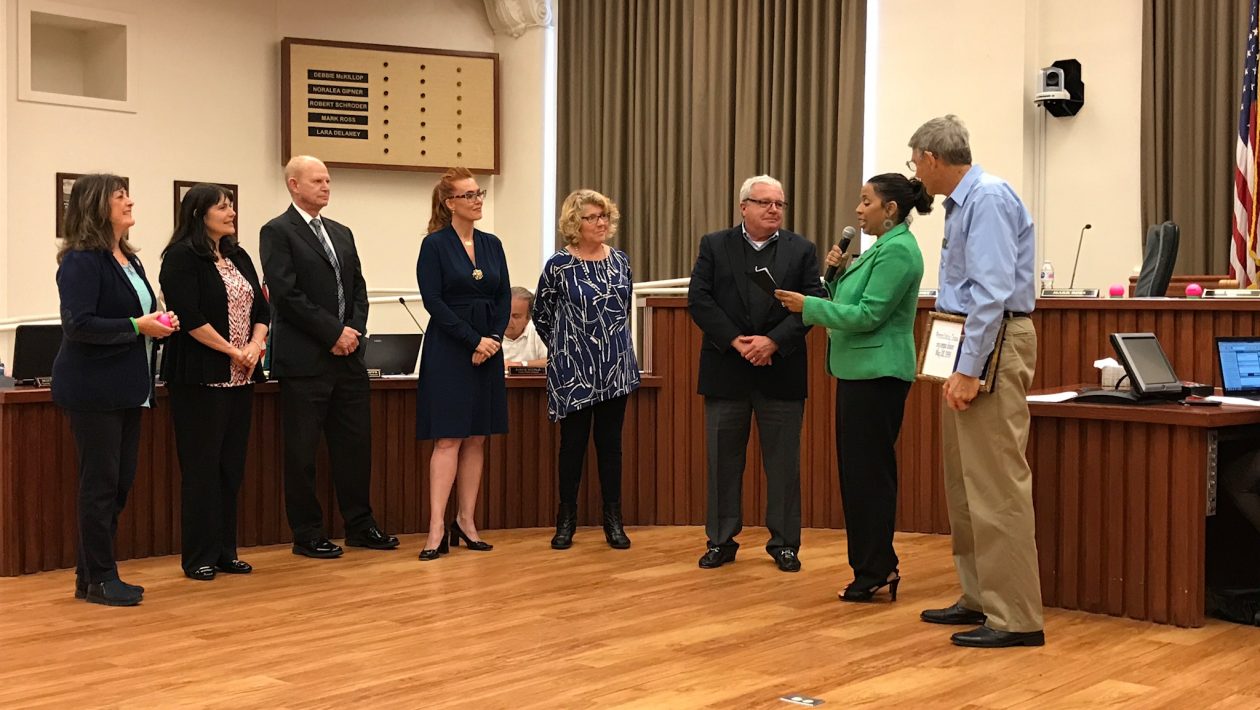

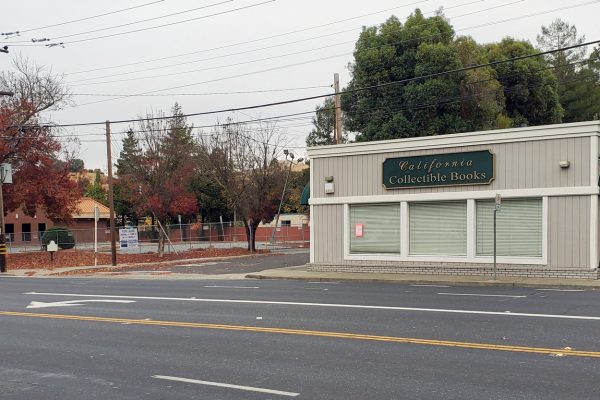
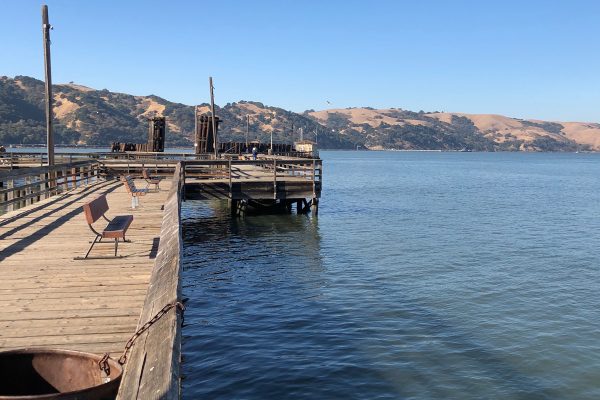

The city has serious financial issues was the claim last week